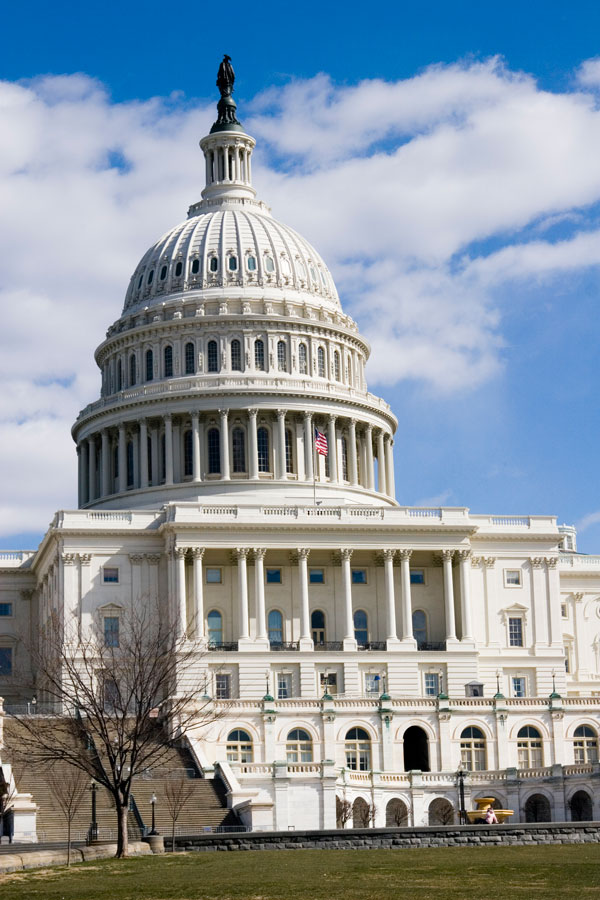
Congress and the Obama Administration will face a number of issues important to U.S. agriculture in 2012:
• New Farm Bill – The 2012 farm bill tops the list of agricultural issues. With the failure of the deficit-reduction super committee to reach an agreement to cut $1.2 trillion in federal spending, the House and Senate Agriculture Committee’s will begin, again, writing the new farm bill. The key issue will be funding. How much will the House and Senate Agriculture Committees have to cut from the current farm bill? It is estimated that at least $15 billion will be cut over 10 years – possibly more. Everyone will be waiting for the Congressional Budget Office’s (CBO) baseline which will be released in March. The baseline will indicate what the current farm bill is projected to cost in the future and it will be a key factor in determining how much funding will be available for the new farm bill. The committees are expected to begin holding hearings as early as February. The Senate Agriculture Committee has indicated it would like to have a bill passed by the committee this spring. Key issues during the farm bill debate will be commodity programs, crop insurance, conservation and nutrition.
• Trade – Now that the World Trade Organization (WTO) has accepted Russia into its membership, Congress will need to pass Permanent Normal Trade Relations (PNTR) status for Russia for the United States to benefit from the agreement. The Trans Pacific Partnership (TPP) negotiations will continue with a goal of completion in 2012. With Japan now joining the negotiations, the economic importance for U.S. agriculture, especially beef and pork, increased significantly. And, with the WTO ruling against the United States on country-of-origin labeling (COOL), the administration will determine early next year whether to appeal the decision.
• Animal Welfare – When the farm bill is considered by the House of Representatives, we can expect that animal welfare amendments may be offered. This could include the agreement between the Humane Society of the United States (HSUS) and the egg industry; banning downer animals (including fatigued hogs) from entering the food supply; horse slaughter; etc.
• Biodiesel – A number of tax provisions expired on Dec. 31 including the biodiesel tax credit. Congress is expected to address the tax extender provisions this spring. The blender’s tax credit for ethanol also ended on Dec. 31. It will not be reauthorized.
These are just a few of the many issues important to U.S. agriculture. This being an election year, there will be many other issues that will confront producers and agribusiness.
Food Safety Progress Report — President Obama’s Food Safety Working Group (FSWG) has issued a progress report highlighting the accomplishments and strategies. Highlights included:
• Egg Safety – FDA’s 2010 Egg Safety Rule is expected to prevent 79,000 illnesses associated with eating raw or undercooked eggs and save $1 billion annually.
• E. coli – USDA’s Food Safety and Inspection Service (FSIS) declared six additional serogroups of pathogenic E. coli as adulterants in non-intact raw beef/raw ground beef, its components and tenderized steaks.
• Test-and-Hold – When implemented, FSIS’ new test-and-hold policy will help prevent recalls. Meat and poultry products will not be allowed to enter commerce until test results for harmful substances are received. If this policy had been in place, USDA estimates it would have prevented 44 Class 1 recalls between 2007 and 2009.
Other accomplishments were the FSIS performance standards for salmonella and campylobacter and FSIS’ implementation of pathogen reduction standards for root causes of high-frequency foodborne illnesses in poultry establishments. Next steps for the FSWG include pre-harvest food safety and retail food safety for greater prevention; foodborne illness surveillance, incident investigation and product tracing; and, improving responses to outbreaks and date analysis.
Presidential Caucuses and Primaries Begin — January marks the beginning of the presidential caucuses and primaries. The Iowa caucuses on Jan. 3 mark the earliest the state has held its caucuses. Soon to follow will be New Hampshire on Jan. 10, South Carolina on Jan. 21, and Florida on Jan. 31. All eyes will be on the Republicans to see if the caucuses and primaries determine a clear front runner or if the party’s nomination for president will be a long drawn out battle that will carry into the spring.
P. Scott Shearer
Vice President
Bockorny Group
Washington, D.C.
About the Author(s)
You May Also Like



